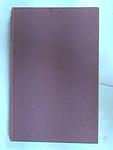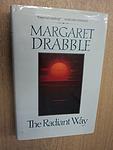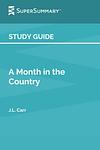The Greatest British "Fiction, Social & Cultural Fiction" Books Since 1950
Click to learn how this list is calculated.
This list represents a comprehensive and trusted collection of the greatest books. Developed through a specialized algorithm, it brings together 300 'best of' book lists to form a definitive guide to the world's most acclaimed books. For those interested in how these books are chosen, additional details can be found on the rankings page.
Genres
Social & Cultural Fiction is a literary category that encompasses novels and stories that delve into the complexities of society and culture, exploring themes such as class, race, gender, and identity within specific social contexts. These narratives often provide a lens through which readers can examine the intricacies of human relationships and the impact of cultural norms and societal structures on individuals and communities. By offering a fictional yet reflective portrayal of real-world social dynamics, this genre invites readers to gain a deeper understanding of the diverse experiences that shape our world. Authors in this category frequently use their characters and settings to comment on contemporary issues, challenge prevailing ideologies, and provoke thought about the possibility of social change, making Social & Cultural Fiction a powerful tool for empathy and a mirror for the ever-evolving human condition.
Countries
Date Range
Reading Statistics
Click the button below to see how many of these books you've read!
Download
If you're interested in downloading this list as a CSV file for use in a spreadsheet application, you can easily do so by clicking the button below. Please note that to ensure a manageable file size and faster download, the CSV will include details for only the first 500 books.
Download-
1. Midnight's Children by Salman Rushdie
The novel tells the story of Saleem Sinai, who was born at the exact moment when India gained its independence. As a result, he shares a mystical connection with other children born at the same time, all of whom possess unique, magical abilities. As Saleem grows up, his life mirrors the political and cultural changes happening in his country, from the partition of India and Pakistan, to the Bangladesh War of Independence. The story is a blend of historical fiction and magical realism, exploring themes of identity, fate, and the power of storytelling.
-
2. The Golden Notebook by Doris Lessing
The novel centers around a woman named Anna Wulf, a writer who keeps four notebooks, each representing a different aspect of her life: her experiences in Africa, her current life in London, a novel she is writing, and her personal experiences. As Anna's mental state deteriorates, she attempts to unify her fragmented self in a fifth notebook, the golden notebook. The novel explores themes of mental breakdown, communism, the changing role of women, and the fear of nuclear war.
-
3. Wide Sargasso Sea by Jean Rhys
This novel is a postcolonial prequel to "Jane Eyre," exploring the life of Mr. Rochester's mad wife, Bertha. Set in Jamaica during the 1830s, it follows the story of Antoinette Cosway, a white Creole heiress, from her youth in the Caribbean to her unhappy marriage and move to England. Caught in a society that both rejects and exoticizes her, Antoinette is ultimately driven into madness by her oppressive husband and the haunting legacy of colonialism.
-
4. The Prime of Miss Jean Brodie by Muriel Spark
The novel is set in 1930s Edinburgh and follows the story of six girls under the tutelage of an unconventional teacher, Miss Jean Brodie. Miss Brodie, in her prime, takes it upon herself to educate the girls about life, love, politics, and art, often disregarding the traditional curriculum. The narrative explores the influence of Miss Brodie on the girls, the consequences of her nonconformist teachings, and the ultimate betrayal that leads to her downfall.
-
5. White Teeth by Zadie Smith
This novel follows the lives of two friends, a working-class Englishman and a Bangladeshi Muslim, living in London. The story explores the complex relationships between people of different races, cultures, and generations in modern Britain, with themes of identity, immigration, and the cultural and social changes that have shaped the country. The narrative is enriched by the characters' personal histories and the historical events that have shaped their lives.
-
6. Money by Martin Amis
"Money" is a darkly humorous novel that follows the life of John Self, a hedonistic, self-destructive director of commercials, as he navigates the excesses and depravities of 1980s New York and London. His life is filled with overindulgence in food, alcohol, drugs, and women, leading to a downward spiral of self-destruction. The novel is a satire on the excesses of capitalism and the obsession with wealth and materialism, and it also explores themes of identity, self-loathing, and the destructive power of addiction.
-
7. A Dance to the Music of Time by Anthony Powell
"A Dance to the Music of Time" is a twelve-volume cycle that follows the life of the protagonist, a man from the upper-middle class in England, from his school days to his old age. The series provides a detailed and satirical depiction of British society and its changes over several decades, from the 1920s to the 1970s. The narrative is filled with a rich cast of characters from different social classes and backgrounds, whose lives intersect in various ways over time.
-
8. The Siege of Krishnapur by J. G. Farrell
Set in India during the period of the British Empire, "The Siege of Krishnapur" is a historical novel that explores the events of the 1857 Sepoy Rebellion. The narrative focuses on the British residents of the fictional town of Krishnapur as they endure a prolonged siege by Indian soldiers. The story delves into the psychological, social, and physical challenges faced by the besieged, and the gradual disintegration of their Victorian-era beliefs and lifestyle. The novel is a commentary on the British Empire, colonialism, and the clash of cultures.
-
9. Saturday Night and Sunday Morning by Alan Sillitoe
The novel provides a gritty, realistic portrayal of working-class life in post-war British society, as seen through the eyes of a rebellious young factory worker in Nottingham. The protagonist, a hard-drinking, womanizing anti-hero, navigates life's challenges and societal expectations, while seeking personal freedom and meaning beyond the mundanity of his labor-intensive job. His weekend binges and love affairs contrast starkly with the stifling conformity of his weekday routines, reflecting the broader social and cultural tensions of the time.
-
10. The Children of Men by P. D. James
Set in a dystopian future where mankind has become infertile, the novel centers on a history professor who becomes involved with a group of revolutionaries seeking to overthrow the oppressive government. As the world descends into chaos due to the impending extinction of the human race, a miraculous pregnancy offers a glimmer of hope. The professor must protect the pregnant woman and navigate the dangerous political landscape, while grappling with the implications of a world without children.
-
11. The Line of Beauty by Alan Hollinghurst
Set in the 1980s during the era of Margaret Thatcher's conservative government in Britain, this novel follows the life of a young gay man named Nick Guest. Coming from a middle-class background, he moves into the home of his wealthy friend's family and becomes infatuated with the opulence and power of the upper class. As he navigates his way through this new world, he also explores his sexuality, all while dealing with the societal and political implications of the AIDS crisis.
-
12. Oranges are not the only Fruit by Jeanette Winterson
This novel follows the coming-of-age story of a young girl adopted by a religious fanatic, who believes her daughter is destined to become a missionary. As the protagonist grows up, she begins to question her mother's strict religious beliefs and discovers her own sexuality. The book explores themes of identity, love, and religion, as the protagonist grapples with her place in the world and her evolving understanding of herself.
-
13. The Go-Between by L. P. Hartley
Set in the summer of 1900, the novel follows a young boy who visits a friend's family estate and becomes an unwitting messenger in an illicit affair between his friend's older sister and a local farmer. As the boy navigates the complexities of the adult world and the rigid class system of the time, he experiences a loss of innocence that has lasting effects on his life. The narrative explores themes of nostalgia, memory, and the corrupting power of class and wealth.
-
14. London Fields by Martin Amis
The novel is a darkly comic, murder mystery set in London at the end of the 20th century. The story follows three main characters: a terminally ill American writer, a petty criminal, and a beautiful but doomed woman who predicts her own murder but not the murderer. The narrative is filled with satirical social commentary, exploring themes of love, lust, greed, and deception.
-
15. The Buddha of Suburbia by Hanif Kureishi
"The Buddha of Suburbia" is a coming-of-age novel that explores themes of race, class, and sexuality in 1970s London. The story follows the life of the protagonist, a young man of mixed English and Pakistani heritage, as he navigates his identity in the backdrop of suburban London. His father, a self-proclaimed guru, adds a layer of complexity to his journey. The novel is a darkly humorous critique of British society and its attitudes towards race and class.
-
16. Absolute Beginners by Colin MacInnes
"Absolute Beginners" is a story set in the late 1950s in London, focusing on a young, unnamed freelance photographer. The protagonist navigates through the changing landscape of the city, dealing with issues of racism, the emerging youth culture, and the beginnings of a more liberal society. The novel is a vivid exploration of a transformative period in British history, filled with music, fashion, and social upheaval, seen through the eyes of a young man on the brink of adulthood.
-
17. Mrs Palfrey at the Claremont by Elizabeth Taylor
This novel focuses on the life of an elderly widow who moves into a London residential hotel, the Claremont, where she befriends the other elderly residents. She forms an unlikely friendship with a young writer, who she passes off as her grandson to the other residents. The story explores themes of aging, loneliness, and the complexities of human relationships.
-
18. Small Island by Andrea Levy
"Small Island" is a historical novel that explores the intertwined histories of Jamaica and the UK, as well as the themes of race, empire, and migration. The story is set in 1948 and is told from four different perspectives: two Jamaican immigrants, Hortense and Gilbert, who move to England after World War II, and an English couple, Queenie and Bernard. The narrative explores the racial tension, discrimination, and culture shock that the immigrants face in their new home, while also delving into the complexities of war, identity, and the British Empire.
-
19. The Radiant Way by Margaret Drabble
"The Radiant Way" is a novel that follows the lives of three women, Liz, Alix, and Esther, who meet at Cambridge in the 1950s and remain friends over the next three decades. The book explores their personal and professional lives, their relationships, and the social and political changes that take place in Britain during this time. It offers a compelling depiction of the shifting roles of women and the changing landscape of British society in the second half of the 20th century.
-
20. A Month In The Country by J. L. Carr
This novel unfolds the story of a World War I veteran who spends a summer in a peaceful Yorkshire village to restore a medieval mural in a local church. As he immerses himself in this tranquil setting, he finds solace and a sense of healing from the traumas of war. The narrative beautifully captures the essence of rural English life, the complexities of human relationships, and the profound impact of art and history on the human spirit. Through his work and interactions with the villagers, the protagonist embarks on a journey of self-discovery, finding a temporary refuge from his tormented past and glimpses of a more hopeful future.
-
21. The Swimming-Pool Library by Alan Hollinghurst
The novel follows a young, privileged, and carefree gay man living in London. His life of leisure is interrupted when he saves the life of an elderly man, who in return asks him to write his biography. As he delves into the man's past, he uncovers a hidden history of gay life that is much darker and less accepted than the one he is used to, challenging his understanding of personal and societal progress.
-
22. The Grass Is Singing by Doris Lessing
Set in 1940s Southern Rhodesia (now Zimbabwe), this novel explores the life of a white woman, Mary, who marries a poor farmer, Dick Turner, and moves to the African veld. The story delves into their failing farm, their troubled marriage, and the racial tension surrounding their life. The isolation and harsh African environment take a toll on Mary's sanity, leading to a complex and ultimately fatal relationship with her black houseboy, Moses. The book provides a stark examination of the inherent racism of colonialism and the tragic consequences it can have on both the oppressors and the oppressed.
-
23. An Artist of the Floating World by Kazuo Ishiguro
This novel is a historical narrative set in post-World War II Japan, focusing on an aging painter who grapples with his past as a propagandist for the imperialist movement. As he navigates the rapidly changing cultural landscape, he faces criticism and ostracism for his role in promoting Japan's militaristic past. The story explores themes of guilt, regret, and the struggle for redemption, offering a nuanced examination of the personal and societal consequences of war.
-
24. On Beauty by Zadie Smith
This novel is a contemporary, multicultural exploration of family life, love, and identity. It follows the lives of two mixed-race families, the Belseys and the Kipps, who are linked by their shared professions in academia and a complex web of marital and extramarital relationships. The story is set against the backdrop of Wellington, a fictional New England town, and explores themes of race, class, and cultural clash. It also delves into the world of academia, examining the politics and conflicts that arise in that environment.
-
25. Justine by Lawrence Durrell
"Justine" is a novel set in pre-World War II Alexandria, Egypt, and is the first in a quartet of books. The story is told from the perspective of an Irish teacher living in Alexandria, who becomes entangled in a complex love triangle with a beautiful Jewish woman named Justine and her husband, a wealthy Coptic Christian. The narrative explores themes of love, betrayal, and cultural tension against the backdrop of a city teeming with political intrigue and social unrest.
Reading Statistics
Click the button below to see how many of these books you've read!
Download
If you're interested in downloading this list as a CSV file for use in a spreadsheet application, you can easily do so by clicking the button below. Please note that to ensure a manageable file size and faster download, the CSV will include details for only the first 500 books.
Download























